Led by Civil Society, Kashmiris Prepare for a Third Wave
'I even received calls from Delhi for oxygen concentrators. They still echo in my mind'
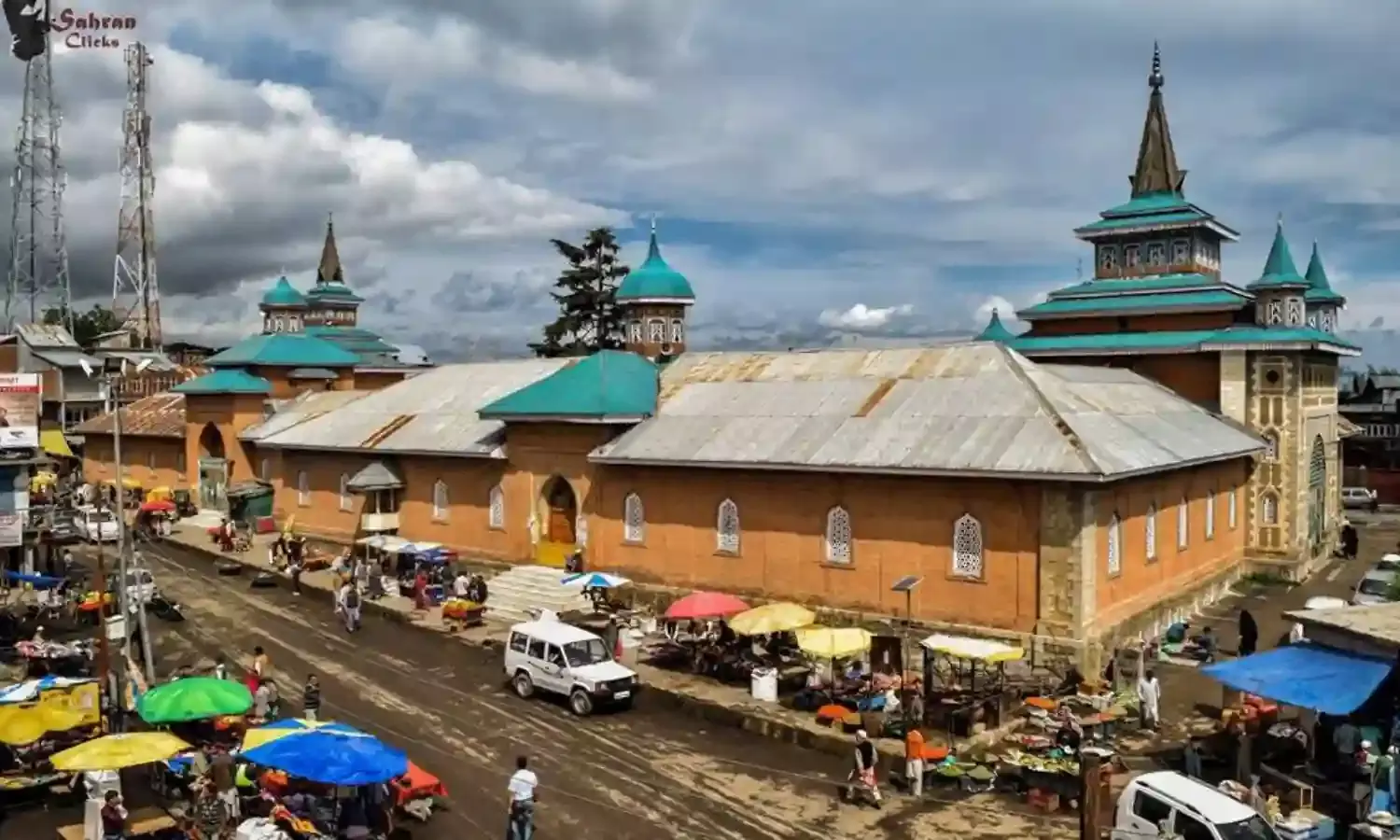
As a likely third Covid wave approaches, Kashmir’s civil society has paced up its preparations as medical experts caution that the next three months will be crucial for the erstwhile state.
With a strong history of community support, it was selfless volunteers in the Kashmir Valley who stepped up to play a proactive and significant role in responding early to the earlier waves of infection, thwarting a major mess.
These volunteers from the community served people on the ground 24x7, mitigating the impact of Covid across several different districts in Kashmir, and by the last week of August 2021 the UT had witnessed only 4,400 deaths.
Working under successive lockdowns, underresourced healthcare, inadequate hospitals and strictly regulated international aid, community groups, bayts-ul-maal, as well as volunteers and cash-strapped local NGOs stepped in where official efforts fell short.
Now in an uncertain atmosphere, many continue to work silently to serve people irrespective of faith or belief.
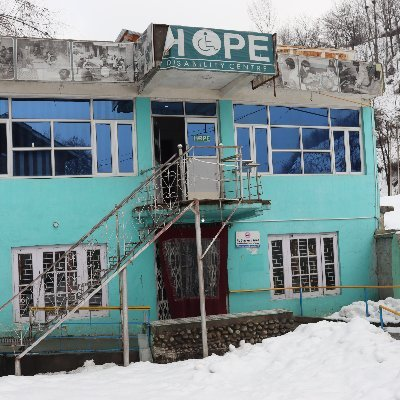
In Ganderbal district in central Kashmir, by the gushing waters of the Sindh river stands the office of the Hope Disability Centre. From providing essentials to finding people ambulances, the NGO has prioritised three sections of society: families headed by women, people with disabilities, and those below the poverty line.
Ration kits, medicines and other essentials were distributed readily to those in need. In some cases they have extended support for several months.
Its work not confined to Ganderbal, the NGO has helped locals and non-locals across Kashmir with logistics support along with other emergency assistance.
According to Sami Wani, who manages the Hope Disability Centre, there is usually no scarcity of volunteers in Kashmir. But Covid made things more complicated as the NGO did not want to risk its volunteers getting infected and spreading the virus themselves.
“We held proper orientation training under Covid guidelines for our own members so the volunteers who join us don’t become part of the reason for its spread, as we have a responsibility to serve people,” says Wani.
Another NGO, the Al Khadim Foundation, has also provided transport, emergency assistance and meals in three districts: Pulwama, Srinagar and Budgam.
Sarfaraz Sameer, who runs the foundation, said they respond to all kinds of requests. Once he got a call from a girl in distress at one of the quarantine centres in Awantipora where they weren’t being provided with sanitary napkins or other women-related emergency products. Within half an hour volunteers from Al Khadim had reached the centre.
The NGO has also reached out to a particularly badly affected group in the Valley – transporters – providing them with essentials to get by during lockdowns.
“With these back-to-back lockdowns the middle class and poor families suffered extensively. There were many locals and non-locals who asked us to help their families by providing them meals for a few months because they weren’t in a position to earn,” says Sameer.
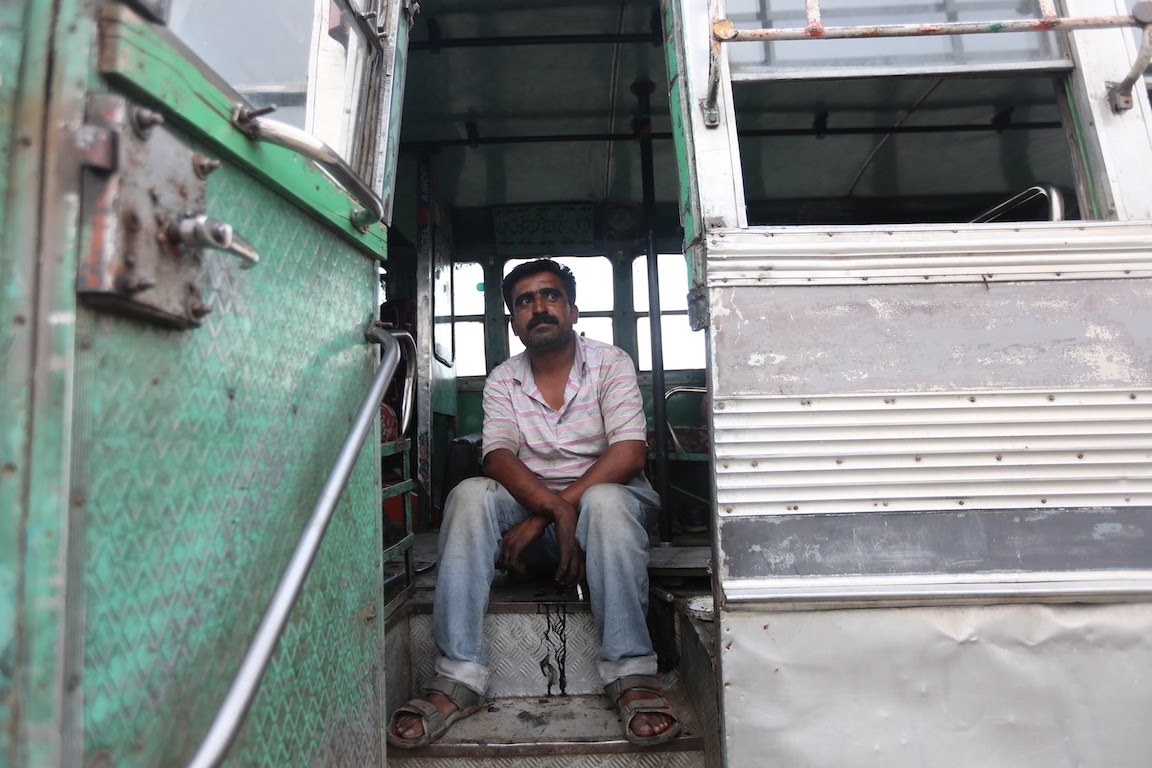
In south Kashmir’s Shopian lies the Rehmatal-lil-Alameen Society, a bayt-ul-maal (one of the community treasuries often formed at local mosques) that collects monthly donations of zakat to help needy households throughout the year.
As the second wave swept across the region, Shopian’s bayt-ul-maal had acquired 40 oxygen concentrators along with 20 oxygen cylinders and four medical beds for patients in distress. The society says it helped over 2,000 patients obtain oxygen and spent more than 2 lakh rupees on ambulance services.
The community treasury also checked up on roadside vendors, who were badly affected, and provided them rations. The society says they were able to provide Rs 2,000 to more than 1,500 families who were unable to earn during the Covid lockdowns.
Its general secretary Syed Altaf reiterates the strong volunteer culture in the region. “We don’t need to register volunteers. People show up whenever there is any kind of crisis. We feel each other’s pain. We are happy that we get to see enough manpower in such distressing times.”
During the peak, says Altaf, he would get 30 to 40 calls on his personal number from across the district every day. Most required immediate help. “People from other districts would also call us sometimes. I even received calls from Delhi for oxygen concentrators. It was distressing to hear those pleas. They still echo in my mind.”
He says that no volunteer or member associated with the Shopian bayt-ul-maal has been found infected so far, despite being knee-deep in aid work and ration distribution networks.
Notably, Shopian is the only district in Kashmir that was not hit too badly during the second wave. In May it became the first to achieve 100% vaccination for people above 45 years of age, followed by Ganderbal.
Meanwhile in Srinagar, a tiffin service operating from Rajbagh has served 25,000 meals so far this year to Covid-affected people including healthcare workers and patients admitted to hospital or isolating at home.
Started during the first wave by Rayees Ahmed Dar and his wife Nida Rehman, Tiffin Aaw – or Tiffin’s Here – began providing free meals when the second wave came crashing down. At a point when the situation was very grim, 800 meals were being served on a daily basis.
The number has now subsided to 100 a day. It was not an easy few months, Dar recalls, as transportation was an issue for door-to-door deliveries. The calls would come in day and night, and Rehman worked with her husband to ensure zero-contact deliveries.
Their day would begin at 5 am when they would procure ingredients such as chicken, mutton, vegetables and other essentials, and continue working till late into the night. Besides 400 calls a day during the peak, many requests came in via social media.
And when money became tight, people’s goodwill kicked in, and Tiffin Aww received close to Rs 16 lakh in local donations so their service could continue.
He says he broke down in his car one day after being informed that the patient he was on his way to deliver food to had died.
“Tiffin Aaw isn’t a business, it’s an emotion,” says Dar. “If I hadn’t sacrificed my commercial service for the people in need during strange and difficult times, I would have regretted it my entire life. There was no point in my existence if I couldn’t save people from starvation when I knew I could.”
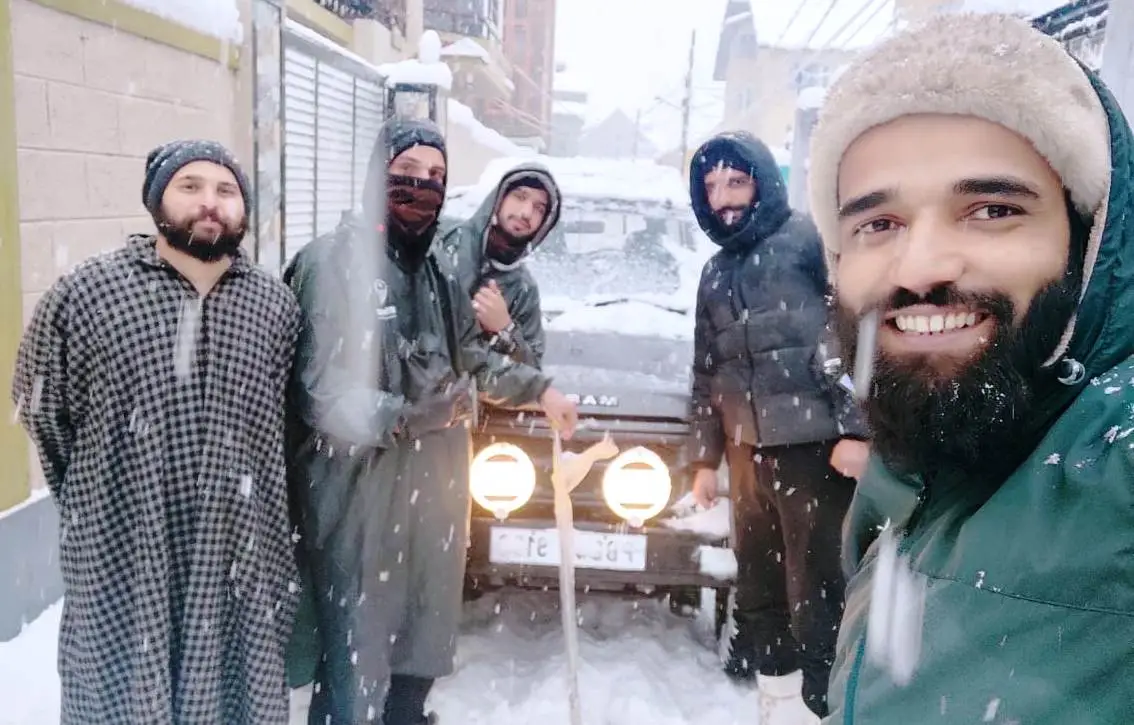
Another Srinagar based NGO, ELFA International has played a pivotal role in responding to the crisis.
As early as February 2020 its head Mehran Khan returned home from Delhi to kickstart preparations for the first wave. This was much before the Union government’s Janta Curfew rang the alarm bells over what was to come.
Khan asked his volunteers to stitch PPE kits and triple layered cotton masks even though they had no idea what a PPE kit looked like. After the equipment was approved by health experts in Srinagar the NGO hired tailors to produce PPE and masks in bulk for public distribution, at a time when it was hard to find a mask in the Valley.
ELFA distributed hand sanitisers, masks and reusable PPE kits over several months, helping lakhs of people access safety essentials. The NGO also distributed sanitary napkins at quarantine centres during the first lockdown, and helped with menstrual hygiene in remote areas. The NGO has also given 200 families financial assistance so far.
As restrictions were eased slightly after the first wave, ELFA started a Safe Schools Program in the districts of Baramulla, Kupwara, Jammu and Doda, educating thousands of children, teachers and parents about Covid SOPs and infection protection control.
The purpose of the project was to prepare schools for a safe reopening. Foot-operated hand washing stations and sanitary napkin dispensers were installed at dozens of schools. Later, the government issued a circular for the installation of these machines in every school in what Khan says is a “reward” for its project.
In one instance during the second wave, Khan says the NGO donated an oxygen concentrator to a boat owner who had launched a floating ambulance service on the Dal Lake in Srinagar.
“Delivering essentials to families individually by going door to door was difficult. We faced very different challenges compared to any other emergencies,” he recalls.
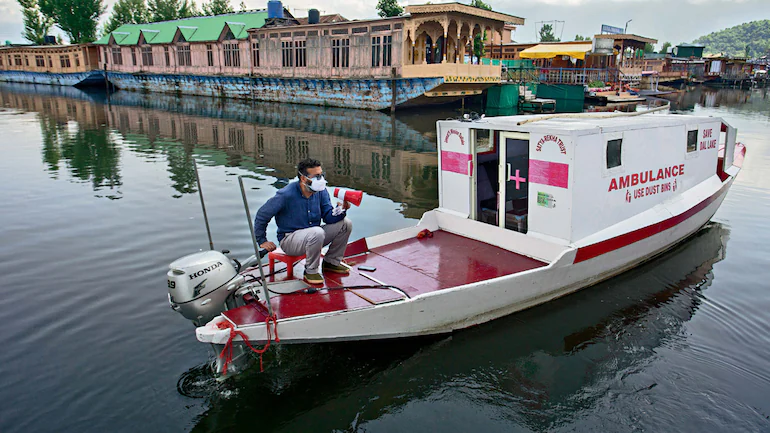
Other NGOs have become synonymous with oxygen supply to critical patients in the Valley. One such organisation is the Social Reform Organisation, which since April last year has been extensively working on the ground.
Working with domestic donations, SRO says that besides oxygen it has provided relief materials and other essentials, medicines, diagnostics, testing, burial of unclaimed bodies and much more, and has incurred a debt of Rs 38 lakh.
With the aim of reducing the burden on hospitals, SRO managed to procure high-flow nasal cannulas, non-invasive ventilation machines, a gamut of pulmonary equipment and a bulk of high-flow oxygen cylinders to help over 9,000 critically ill patients.
A representative said it was at one point catering to around 400 patients in their homes every day. They would receive around 500 calls daily on their toll-free number and another 300 on each of the five personal numbers that were given out.
The NGO is also running a Food for Poor initiative that has catered to some 8,000 individuals so far, and has also distributed supportive aid to some 200 families dealing with physical impairments.
Afaaq Sayeed, who heads SRO’s oxygen wing, said that they wanted to help people on the ground but couldn’t do much initially as finances were tight. Then the local community stepped up on a huge scale “and trusted us without casting any aspersions.”
“People were very receptive and chipped in at the right time after we made a call for donations on social media,” he says.
During the peak, says Sayeed, “There was a psychological breakdown many times. We faced many challenges and almost all the volunteers caught Covid infection at some point. We have been helping those infected and have to help ourselves to not get infected at the same time.”
Nobody knew then that major hospitals in Srinagar would require oxygen supply from NGOs. The Social Reform Organisation is now ramping up its resources and refining logistics to prepare for the third wave.
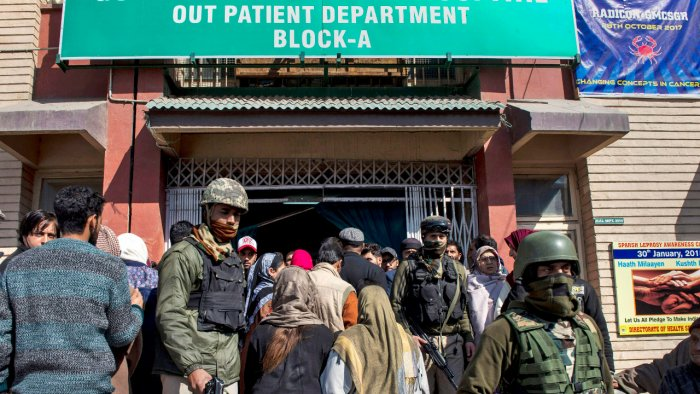
Athrout, which in Kashmiri means ‘the helping hand’, is another NGO that has remained committed to providing aid on the ground. Despite losing one of its founding members during Ramzan this year to Covid19, Athrout continues on.
From distributing drugs, PPE, masks, sanitisers, oximeters and body bags, the Srinagar based NGO went ahead with their services by turning the Haj House into a Covid centre with 100 beds with oxygen supply – all with the money coming from donations.
Athrout also provided BiPap and CPAP machines, and six ventilators worth Rs 40 lakh. They also made 80 trolleys for oxygen cylinders and distributed them to hospitals so that patients would not have a hard time moving the cylinders from one place to another.
Athrout has also reached out to districts in Jammu and Ladakh, with 150 oxygen machines handed over to various NGOs to ensure the availability of oxygen supply throughout Jammu, Kashmir and Ladakh.
And they have distributed 10,000 food kits (each worth Rs 1,700) to labourers, transporters and shopkeepers. They continue to provide food kits to those in need even today, along with Dignity Kits that include sanitary napkins, sanitisers, hand wash etc.
After Jammu it is Srinagar that has borne the brunt of Covid in Kashmir, and with over 800 deaths in the district so far it is the SMHS Hospital in Srinagar that has borne the brunt.
“There was a time when we would have to hunt for even a single mask in the hospital. Nobody would dare enter the premises. It is then that NGOs and other volunteers came forward with protective, sanitising equipment and logistics. Their timely help had an immense impact in decreasing the burden on hospitals,” says Dr Imtiyaz Ahmad, who was registrar in the department of medicine at SMHS.
Now posted at the district hospital in Ganderbal, Ahmad has also participated in the tele-consultation service established by the Ehsaas International NGO, where more than 300 Kashmiri diaspora doctors around the globe too have volunteered their time for medical consultations.
Calling the support of countless volunteers encouraging, Ahmad says that “without their support, not just patients, but many more frontline healthcare workers would have faced worse and suffered a lot more.”
“Had they not come forward, we would have crumbled.”
Farheen Qureshi is an independent journalist based in Kashmir



